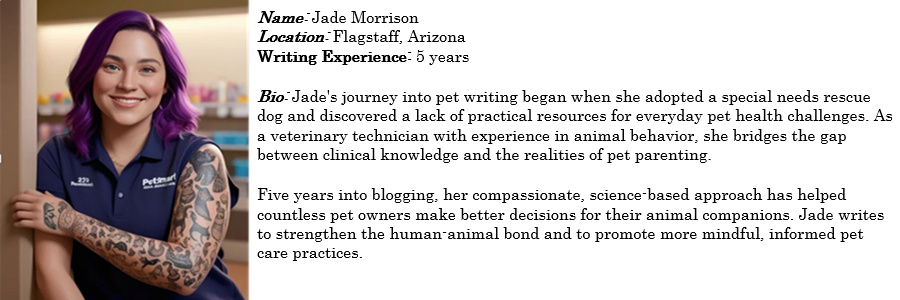
Introduction to Puppy Vaccinations
Puppy vaccinations are a fundamental aspect of responsible pet ownership, as they play a crucial role in ensuring the long-term health and well-being of your canine companion. Vaccinations act as a preemptive measure, safeguarding puppies against a variety of infectious diseases that can pose serious health threats. By stimulating the puppy’s immune system, vaccinations help in the development of immunity against diseases such as parvovirus, distemper, adenovirus, and rabies, among others.
During the early stages of life, a puppy’s immune system is still maturing, making it particularly vulnerable to infections. It is vital to initiate vaccinations in a timely manner to establish immunity before exposure to potential pathogens. Typically, the vaccination process starts at six to eight weeks of age and continues until the puppy is around 16 weeks old. Following this schedule ensures that the puppy receives a series of vaccinations that will bolster its defenses and prepare it for a healthy life ahead.
Furthermore, adhering to a tailored vaccination schedule is not just about immediate health; it’s also essential for preventing the spread of contagious diseases within the broader canine community. Many areas have specific vaccination laws and recommendations designed to protect all pets, emphasizing the importance of your puppy being up to date with its vaccinations. Understanding the role of vaccinations and the benefits they confer is crucial for every puppy owner. This commitment not only helps in safeguarding the health of your puppy but also contributes to the well-being of other pets and the greater community.
Core Vaccines: What Every Puppy Needs
Core vaccines are essential for every puppy as they provide crucial protection against several serious and potentially fatal diseases. The four primary core vaccines include those for distemper, parvovirus, infectious canine hepatitis, and rabies. These diseases pose significant health risks and are widely prevalent, making vaccination a vital part of a puppy’s healthcare regimen.
Canine distemper is a viral disease that affects a puppy’s respiratory, gastrointestinal, and central nervous systems. It is highly contagious and can lead to severe neurological issues or even death. Vaccination against distemper is typically administered in a series, starting at six to eight weeks of age, with subsequent doses given every three to four weeks until the puppy reaches around 16 weeks of age.
Parvovirus is another highly infectious disease that primarily affects puppies. It causes severe gastrointestinal illness, leading to vomiting, diarrhea, and in many cases, dehydration and death. Vaccination against parvovirus should begin at a similar age as distemper, again repeating doses until the puppy is around 16 weeks old.
Infectious canine hepatitis, caused by the canine adenovirus, affects the liver and can lead to severe complications. This vaccine is often combined with others in a single shot known as the DAPP (Distemper, Adenovirus, Parvovirus, and Parainfluenza) vaccine. It is crucial to administer this vaccine within the same timeline to ensure comprehensive protection.
Lastly, the rabies vaccine is critical not only for a puppy’s health but also for public safety. Rabies is a zoonotic disease, meaning it can be transmitted to humans. Most states require rabies vaccinations by a certain age, usually around 12 to 16 weeks. The vaccine is essential for preventing this fatal disease and ensuring compliance with health regulations.
While vaccines can have side effects, such as mild fever or soreness at the injection site, serious reactions are rare. It is important to discuss any concerns with a veterinarian, who can provide guidance on managing potential side effects and the timing of vaccinations to optimize a puppy’s health and wellbeing. Understanding the importance of these core vaccines sets the foundation for a healthy life for your puppy.
Non-Core Vaccines: Assessing Individual Needs
While core vaccinations are essential for every puppy, non-core vaccines play a significant role in tailored health care, particularly based on individual factors such as lifestyle, environment, and geographic location. It is crucial to evaluate the specific risks your puppy may encounter to determine if non-core vaccines should be incorporated into their vaccination schedule.
One commonly discussed non-core vaccine is the Bordetella vaccine, which protects against kennel cough, a highly contagious respiratory disease. This vaccine is particularly recommended for puppies that frequent dog parks, boarding facilities, or grooming services where they may be exposed to other dogs. Puppy owners should assess their puppy’s socialization activities to determine the necessity of this vaccination.
Another important non-core vaccine is for Lyme disease, which is transmitted through ticks. In regions where ticks are prevalent, particularly areas with wooded or grassy environments, vaccinating against Lyme disease can help shield your puppy from this potentially serious infection. Consult with your veterinarian to understand local tick populations and assess whether the benefits of this vaccine outweigh the risks.
Leptospirosis vaccination is also a consideration for puppies, especially in areas with standing water or where other animals frequent. This vaccine guards against a bacterial disease that can be contracted through contaminated water. The decision to vaccinate against leptospirosis should take into account your puppy’s exposure to such environments and veterinary recommendations.
Lastly, the canine influenza vaccine is becoming increasingly recommended for puppies, particularly in urban or densely populated areas where dog-to-dog contact is common. Canine influenza is a contagious respiratory illness that can lead to severe health complications, making this vaccine valuable for at-risk puppies.
While these non-core vaccines offer important protections, it is essential to be aware of potential side effects and reactions. Common reactions can include mild lethargy or soreness at the injection site. However, more serious reactions, though rare, can occur. It is advisable to monitor your puppy closely after vaccinations and consult your veterinarian with any concerns.
Creating an Easy-to-Follow Vaccination Schedule
Developing a systematic vaccination schedule for your puppy is vital for ensuring their health and preventing diseases. The recommended vaccination timeline commences when puppies are approximately six weeks of age and continues until they reach sixteen weeks and beyond. Typically, the initial vaccinations include the combination vaccine, often referred to as DHPP (canine distemper, hepatitis, parvovirus, and parainfluenza). The first dose should be administered at six to eight weeks of age, followed by additional doses every three to four weeks until the puppy is sixteen weeks old.
At twelve weeks, the rabies vaccine is generally given, as it is crucial for preventing this deadly disease and is often required by law. It is recommended that puppy owners keep diligent records of each vaccine administered, including dates and types, to ensure their puppy maintains an up-to-date vaccination status. Post sixteen weeks, an annual booster for the DHPP vaccine and a rabies booster according to local regulations are required to sustain immunity levels.
In addition to these core vaccinations, some puppies may require additional vaccinations based on lifestyle and risk factors. For instance, the Bordetella vaccine, which helps prevent kennel cough, and the Leptospirosis vaccine, which is important for puppies that spend time outdoors, are also worth considering. Tracking each vet visit and vaccination can be accomplished through a simple chart or a dedicated mobile application, ensuring you never miss a booster appointment.
In conclusion, adhering to a comprehensive vaccination schedule is crucial for your puppy’s health. By following the outlined timeline and maintaining detailed health records, you’ll be well-equipped to ensure your puppy stays protected against preventable diseases, promoting a long and happy life.


